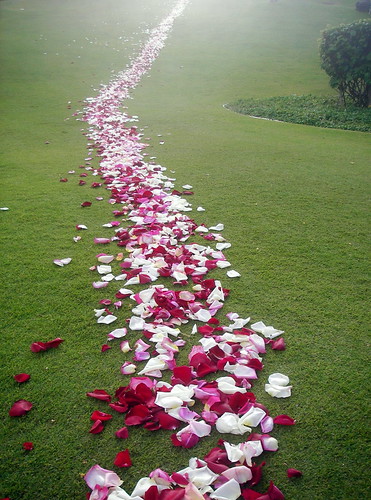Mystic Chat
by Hakim SanaiEnglish version by Peter Lamborn Wilson and Nasrollah Pourjavady
Original Language Persian/Farsi
My dear!
You haven't the feet
for this path --
why struggle?
You've no idea where
the idol's to be found --
what's all this
mystic chat?
What can be done
with quarrelsome
fellow travelers,
boastful
marketplace
morons?
If you were really a lover
you'd see that faith and infidelity
are one...
Oh, what's the use?
nit-picking
about such things
is a hobby for
numb brains.
You are pure spirit
but imagine yourself a corpse!
pure water which thinks
it's the pot!
Everything you want
must be searched for --
except the Friend.
If you don't find Him
you'll never
be able
to start
to even
look.
Yes,
you can be sure:
You are not Him --
unless
you can remove yourself
from between
yourself
and Him --
in which case
you
are
Him.
| -- from The Drunken Universe: An Anthology of Persian Sufi Poetry, Translated by Peter Lamborn Wilson / Translated by Nasrollah Pourjavady |
<<Previous Poem | More Poems by Hakim Sanai | Next Poem >>

/ Image by jurvetson /
Like several of Sanai's poems, this verse seems to be discouraging people from the sacred path. But if you pay attention to what he's saying, Sanai is actually trying to sift out those who are merely curious or caught up in legalistic debate. He is preserving what he has to share for those who are sincere and ready...
Here Sanai especially lampoons people who spend their lives studying the sacred books and arguing endlessly about subtle, sacred things that they don't truly understand. "What can be done / with quarrelsome / fellow travelers, / boastful / marketplace / morons?" The "marketplace" is a common Sufi metaphor for worldly activity, the blind busyness of mundane life. These are people who haven't gone inward, they know little about the true mysteries, yet they are "boastful" because of what they've memorized of the sacred scriptures. This is similar to what Jesus says in the Christian gospels, berating the legalistic Saducees and Pharisees who know the letter of the Law, but not its spirit. Sanai continues the tradition of pointing out the folly of fundamentalist thinking (in every religious tradition) that idolizes sacred scripture while it denies that there is anything to actually be understood, a process that perverts sacred tradition into being merely a list of rules. "Nit-picking / about such things / is a hobby for / numb brains."
This is just one more spiritual sickness that emerges from the common illusion of materialism, of imagining that we are physical bodies that are born, live separate lives, and finally die. "You are pure spirit / but imagine yourself a corpse! / pure water which thinks / it's the pot!" This comes from not looking deeply. A quick glance in the mirror and we see the "pot", the "corpse" -- that is, the body -- and we think that is what we are. When, in truth, we are that which fills the body, animates it, gives function to the form. All that happens to the water when the pot is broken is that it continues to flow.
I love the lines, "Everything you want / must be searched for -- / except the Friend." The Friend, God, doesn't need to be searched for. The Friend is already here, everywhere, at the heart of all things, held at the center of every pot. The Friend is our true Self, the Self of all selves. But how do you search for God, when what you look for is at the core of your very Self? This creates a riddle: "If you don't find Him / you'll never / be able / to start / to even / look." If you don't already have your Self, what do you have to even look with?
And Sanai teases us further with the closing lines:
Yes,
you can be sure:
You are not Him --
unless
you can remove yourself
from between
yourself
and Him --
in which case
you
are
Him.
If you rework this with understanding, it begins to make sense. Sanai is saying that if you remove yourself -- the ego self, the self that falsely identifies with the limited body -- if you remove that false self which divides the awareness, then all that is left is Him, the Friend, the unlimited Divine One that sits at the center of all things. "You are not Him," until you remove the false identity. Then "you are Him," for who else remains?
Recommended Books: Hakim Sanai

